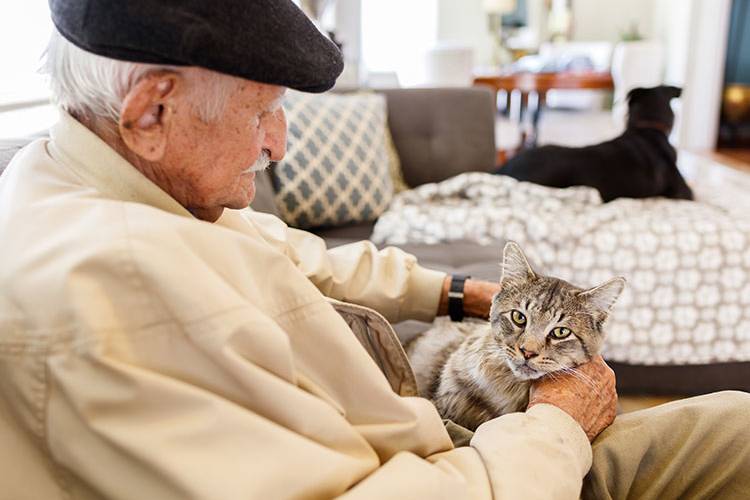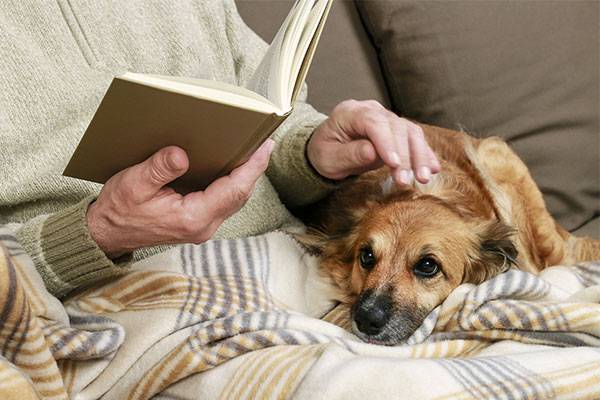Pets, a good company for the elderly
In Spain the number of people over 65 continues to grow, of which a very high percentage live alone. Although they feel good and prefer to live according to their rules, at their pace, a pet can give them great satisfaction.
pets
Share

Dogs, cats and other types of pets can bring great benefits to the elderly, so living with them is highly recommended.
9 Benefits of having an animal at home:
• Depression decreases, since the animals offer affection in a disinterested way and the elderly feel loved.
• Improves quality of life, motivating them to be active every day.
• Reduces stress, by caressing and hugging.
• Increases self-esteem, as they feel useful in having the responsibility to take care of their pet.
• They are happier, by the mere fact of feeling accompanied.
• In the case of dogs, it improves their physical state, having to take them out for a walk and spend time in the open air.
• Socializing. They increase their relationship with other people, having to go out on the street to walk the dog or take the pet to the vet.
• Increases happiness, since the animals always do fun things like 'steal' a slipper or some food or other mischievous things, which provoke the laughter of the elderly.
• Increased family visits. It has been shown that grandchildren their grandparents more, as the desire to be with their grandparent combines with the interest in playing with the pet.
There are already numerous residence homes that are carrying out companionship programmes with dogs or cats

Which is the most appropriate pet?
For people with good health the pet that is recommended is a dog, as the obligation to take it for a walk motivates its owner to go out. Although, of course, if we are going to choose a dog to live with an older person, it is advisable that the dog is also senior and has an energy level similar to theirs. In this way, we fulfil two needs: the person gets faithful company and unconditional love, while the senior dog gets to end his life in a home where he feels useful and wanted.
If the elderly person has reduced mobility, and is not self-sufficient to go out, ideally they should adopt a cat, because they tend to be very affectionate. At animal shelters they have numerous cats for adoption, and the professionals there know the character of each animal, and will always recommend the most appropriate one.
Companionship in residence homes
There are already numerous residence homes that are carrying out companionship programmes with dogs or cats. Through associations or shelters, an agreement is established whereby one day a week, the elderly are visited by some animals that simply fill their lives with joy.
The mere fact of receiving these animals to caress them, take them in their arms, brush them or ask them to give them a paw, makes the elderly feel loved and cared for.






